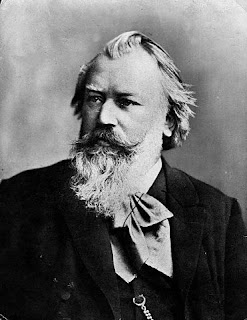Information
Composer: Johannes Brahms
Sviatoslav Richter, piano
Chicago Symphony Orchestra
Erich Leinsdorf, conductor (1-4)
Date: 1960 (1-4), 1988 (5-8)
Label: RCA
- Piano Concerto No. 2 in B flat major, Op. 83: I. Allegro non troppo
- Piano Concerto No. 2 in B flat major, Op. 83: II. Allegro appassionato
- Piano Concerto No. 2 in B flat major, Op. 83: III. Andante
- Piano Concerto No. 2 in B flat major, Op. 83: IV. Allegretto grazioso
- Piano Sonata No. 1 in C major, Op. 1: I. Allegro
- Piano Sonata No. 1 in C major, Op. 1: II. Andante
- Piano Sonata No. 1 in C major, Op. 1: III. Scherzo: Allegro molto e con fuoco
- Piano Sonata No. 1 in C major, Op. 1: IV. Allegro con fuoco
Sviatoslav Richter, piano
Chicago Symphony Orchestra
Erich Leinsdorf, conductor (1-4)
Date: 1960 (1-4), 1988 (5-8)
Label: RCA
----------------------------------------------------------------------------
ARTISTIC QUALITY: 8 / SOUND QUALITY: 9
Sviatoslav Richter’s 1960 recording of Brahms’ Second Piano Concerto sounds fuller and more vibrant in this new transfer than in previous CD editions. Technically, Richter is extraordinary. He negotiates the opening cadenza’s difficult hand-crossings with uncompromising smoothness and impetuously sweeps through the movement’s acres of thick chords and trills. Similar effortlessness informs the Scherzo’s notorious pianissimo octaves (measures 216-221) and the finale’s coda. That said, some listeners might take issue with the performance’s frequent tempo gearshifts, which sometimes result in ensemble lapses, as in the fourth movement’s opening measures. Instead they will prefer readings that are leaner, more assertively accented, and classically poised–like Serkin/Szell, Fleisher/Szell, Gilels/Reiner, and Buchbinder/Harnoncourt. Yet Richter makes a more cogent case for his approach here than in his 1969 remake with Lorin Maazel.
The C major sonata was recorded live in July, 1988. Whatever the 73-year-old pianist had lost in terms of speed, his huge dynamic range, long-lined concentration, and power of projection triumphantly manifest themselves. I still feel that the Finale’s cross-rhythms are better served with faster tempos and lighter articulation (Julius Katchen’s Decca recording remains my favorite, along with the hard-to-find RCA William Masselos traversal), but Richter’s slower, rock-steady gait equally convinces. The interpretation differs very little from the three other Richter Brahms Op. 1 recordings released to date (Decca, Philips, and Praga). This is a disc well worth considering, and not just for Richter acolytes. [8/2/2004]
-- Jed Distler, ClassicsToday
More reviews:
http://www.classical.net/music/recs/reviews/r/rca60860a.php
http://www.allmusic.com/album/brahms-piano-concerto-no-2-piano-sonata-no-1-mw0001858887
https://classicalcandor.blogspot.com/2013/08/brahms-piano-concerto-no-2-cd-review.html
https://www.amazon.com/Brahms-Piano-Concerto-No-Sonata/dp/B0002DD5U2
Sviatoslav Richter’s 1960 recording of Brahms’ Second Piano Concerto sounds fuller and more vibrant in this new transfer than in previous CD editions. Technically, Richter is extraordinary. He negotiates the opening cadenza’s difficult hand-crossings with uncompromising smoothness and impetuously sweeps through the movement’s acres of thick chords and trills. Similar effortlessness informs the Scherzo’s notorious pianissimo octaves (measures 216-221) and the finale’s coda. That said, some listeners might take issue with the performance’s frequent tempo gearshifts, which sometimes result in ensemble lapses, as in the fourth movement’s opening measures. Instead they will prefer readings that are leaner, more assertively accented, and classically poised–like Serkin/Szell, Fleisher/Szell, Gilels/Reiner, and Buchbinder/Harnoncourt. Yet Richter makes a more cogent case for his approach here than in his 1969 remake with Lorin Maazel.
The C major sonata was recorded live in July, 1988. Whatever the 73-year-old pianist had lost in terms of speed, his huge dynamic range, long-lined concentration, and power of projection triumphantly manifest themselves. I still feel that the Finale’s cross-rhythms are better served with faster tempos and lighter articulation (Julius Katchen’s Decca recording remains my favorite, along with the hard-to-find RCA William Masselos traversal), but Richter’s slower, rock-steady gait equally convinces. The interpretation differs very little from the three other Richter Brahms Op. 1 recordings released to date (Decca, Philips, and Praga). This is a disc well worth considering, and not just for Richter acolytes. [8/2/2004]
-- Jed Distler, ClassicsToday
More reviews:
http://www.classical.net/music/recs/reviews/r/rca60860a.php
http://www.allmusic.com/album/brahms-piano-concerto-no-2-piano-sonata-no-1-mw0001858887
https://classicalcandor.blogspot.com/2013/08/brahms-piano-concerto-no-2-cd-review.html
https://www.amazon.com/Brahms-Piano-Concerto-No-Sonata/dp/B0002DD5U2
----------------------------------------------------------------------------
Johannes Brahms (7 May 1833 – 3 April 1897) was a German composer and pianist. In his lifetime, Brahms's popularity and influence were considerable. Brahms composed for symphony orchestra, chamber ensembles, piano, organ, and voice and chorus. Many of his works have become staples of the modern concert repertoire. An uncompromising perfectionist, Brahms destroyed some of his works and left others unpublished. Brahms is often considered both a traditionalist and an innovator. His music is firmly rooted in the structures and compositional techniques of the Classical masters, with a highly romantic nature embedded within.
https://en.wikipedia.org/wiki/Johannes_Brahms
https://en.wikipedia.org/wiki/Johannes_Brahms
***
----------------------------------------------------------------------------
Sviatoslav Richter (March 20 [O.S. March 7] 1915 – August 1, 1997) was a Soviet pianist known for the depth of his interpretations, virtuoso technique, and vast repertoire. He is considered one of the greatest pianists of the 20th century. Richter worked tirelessly to learn new pieces. His vast repertoire, around eighty different programs, not counting chamber works, ranged from Handel and Bach to Szymanowski, Berg, Webern, Stravinsky, Bartók, Hindemith, Britten, and Gershwin. Despite his large discography, Richter disliked the recording process, and most of Richter's recordings originate from live performances.
http://en.wikipedia.org/wiki/Sviatoslav_Richter
http://en.wikipedia.org/wiki/Sviatoslav_Richter
FLAC, tracks
Links in comment
Enjoy!




This comment has been removed by the author.
ReplyDeleteWould it be possible to upload these missing links again?
ReplyDeleteMany thanks in advance!
Choose one link, copy it to your browser's address bar, wait 5 seconds, then click on 'Skip Ad' (or 'Continue') (top right).
ReplyDeleteIf you are asked to download anything, IGNORE, only download from file hosting site (mega.nz).
If MEGA shows 'Bandwidth Limit Exceeded' message, try to create a free account.
http://thacorag.com/3N0N
or
https://ouo.io/7hAhRAP
or
http://uii.io/3mzZSm